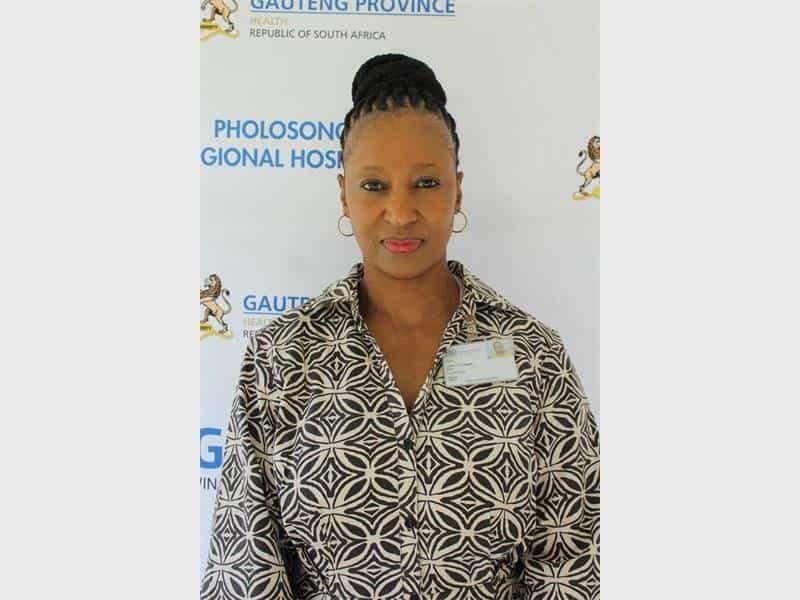
Tsakani – The International Day of Persons with Disabilities is celebrated on December 3, as declared by the United Nations.
In honour of this day, the psychology department at the Pholosong Regional Hospital celebrates all persons living with disabilities, with a special emphasis on those with intellectual disabilities.
“Many people live with some form of disability. The World Health Organisation estimates that more than 1.3 billion people around the world experience some form of disability.
“In SA, it was estimated that about 3.3 milion people lived with a disability in 2022. Frequent forms of disabilities affecting people are visual, mental, those related to hearing, communication, self-care and walking,” said clinical psychologist Dr Lerato Motsoaledi.
Motsoaledi said persons living with a disability experience many stressors, such as social isolation, unemployment or under-employment. They live with other health conditions, such as a lack of access to facilities, poor-quality care, financial strain and reduced independence.
“They often undergo prejudice, stigmatisation, discrimination and demeaning treatment. The more visible the disability to the naked eye, the worse the treatment.
“As Easterseals [NPO providing disability services] say, ‘The worst thing about a disability is that people see it before they see you’.
“This implies that our quick negative judgements of the disabled further disable them more than they truly are, and in so doing, we also forget our own hidden limitations or disabilities,” she added.
She said that persons living with intellectual disabilities are the most vulnerable and misunderstood, saying, in the past, this condition was called “mental retardation”, but that term can no longer be used because it is offensive, disrespectful and carries a stigma.
She said an intellectual disability is a lifelong condition beginning in childhood that limits intellectual functioning and negatively affects daily functioning, school performance and academic progress.
“In SA, about 4% of the population lives with an intellectual disability compared to about 2% globally. Some of the causes are genes, illnesses like measles, head injury, malnutrition, alcohol and drug use during pregnancy, domestic violence and abuse and delivery complications like a lack of oxygen,” added Motsoaledi.
ALSO CHECK: Department hosts School Safety Imbizo in Tsakani
She added that persons with this condition learn to sit, crawl, walk or speak later than others. They might also struggle with mental tasks like paying attention, learning, memory, logical reasoning and problem-solving.
“Socially, they struggle with following rules, understanding the consequences of actions, displaying appropriate social behaviours, making and keeping friends and aggression.
“Later in life, the condition limits a person’s ability to organise work tasks, cope with job responsibilities and manage money,” she said.
She said, “If your child or family member is living with an intellectual disability, consult your clinic or hospital for a diagnosis.”
She encouraged parents to focus on their children’s strengths and address the types of support they need to function better at home, school, work and in the community.
As advice, she emphasised that parents should ensure that any other medical or mental health conditions they might have, such as attention deficit hyperactivity disorder, are treated and place children of school-going age in special schools.
ALSO CHECK: GDE introduces compliance requirements for schools
”School placements often require psychological assessments. Intellectual disability ranges from mild to severe. It is important to note that for most people with this condition, about 85% fall in the mild category. This group has the ability to attain some degree of independence, manage self-care, perform chores like cleaning, cooking and shopping, and learn how to drive and use public transport.
“Those with the ability to learn must be placed in educational institutions offering technical skills programmes so they can participate fully in life,” explained Motsoaledi.
She said one of the best gifts we can give our loved ones and fellow humans living with an intellectual disability is to include them in our social events and leisure activities.
She said families had hidden them for too long, society ignored them, and workplaces overlooked them, adding that life had become increasingly stressful. However, for those with a disability, the difficulties were amplified.
“We all need to strive to create environments where persons living with a disability are enabled to succeed and treated with respect and dignity.
“SA’s constitution protects the rights of all its citizens, meaning persons with disabilities are entitled to enjoy the same rights afforded everyone,” she concluded.
At Caxton, we employ humans to generate daily fresh news, not AI intervention. Happy reading!

